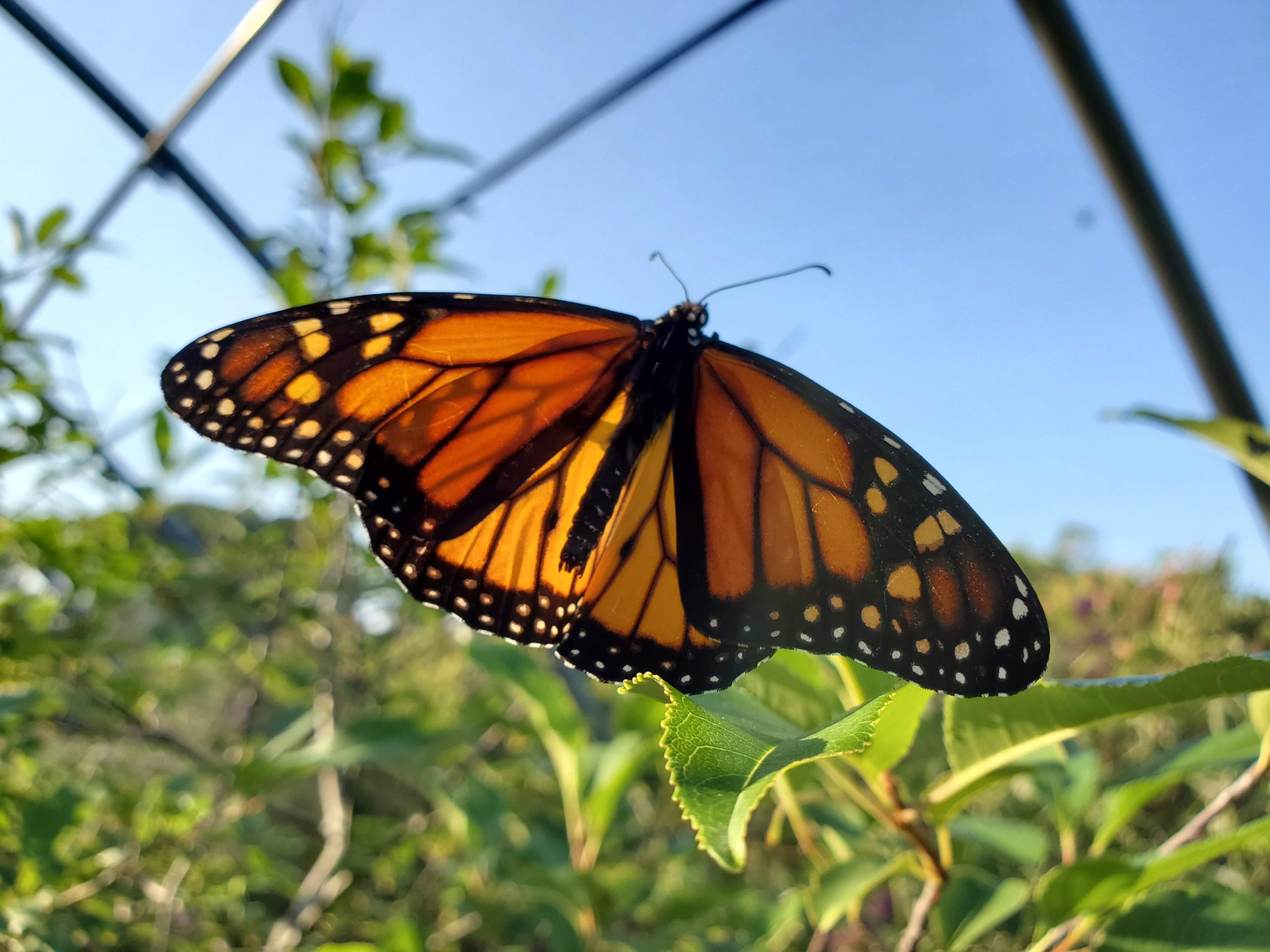The Summer Butterfly House
Open: June 15 - September 30
Our Summer Butterfly House offers an up-close look at native butterflies in a vibrant, enclosed habitat filled with nectar-rich plants. Originally a temporary exhibit in 2009, its popularity led to it becoming a permanent annual experience, now welcoming over 45,000 visitors each summer.
Located in Bristow Butterfly Garden: The 2.5-acre Bristow Butterfly Garden provides a habitat to attract and support butterflies and moths during all stages of their life cycle. Within the garden you will find a swallowtail and monarch nursery, nectar garden, moonlight garden and butterfly bush collection. Our Butterfly House opens seasonally and provides an up-close experience with a variety of butterflies.
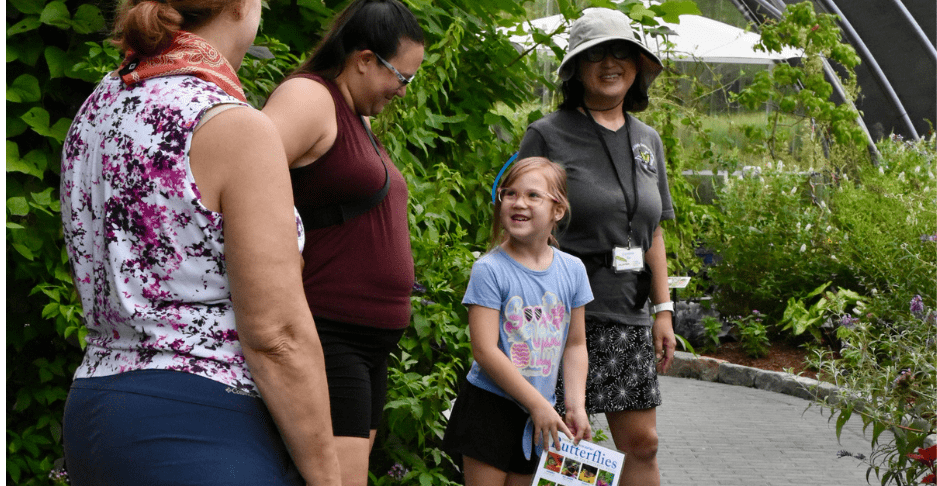
Discover the Butterfly Life Cycle
Here you can see not just butterflies, but their full life cycle! Watch butterflies in action, discover caterpillars and chrysalises, and learn about the fascinating process of metamorphosis, including the monarch butterfly’s migration.
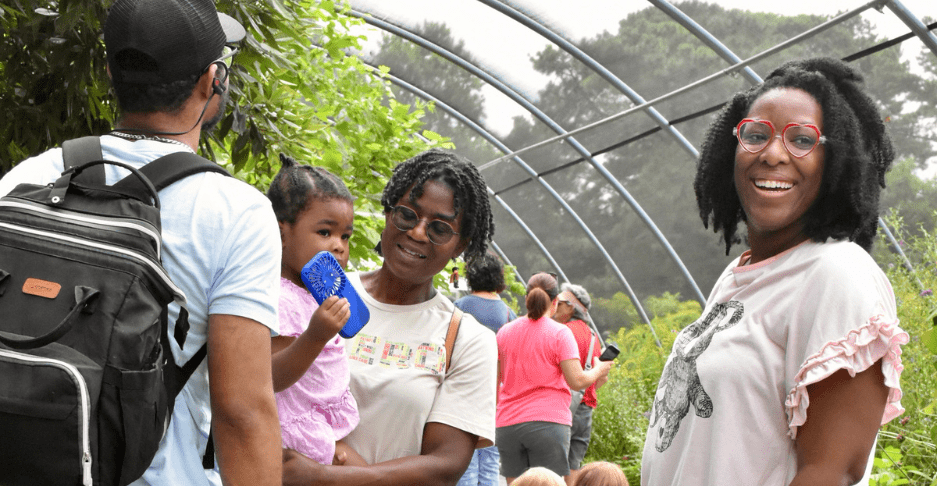
Please be mindful of the house guidelines
when visiting:
- All children must be accompanied by an adult.
- Mind your feet! Please be cautious of the living collection as you enter their habitat please stay on the paths, and check the benches and walkways as you explore.
- Do not touch any specimens. The butterflies will land where they like, but please do not initiate contact with the butterflies, caterpillars, or eggs.
- The picking of flowers, taking of cuttings, and/or collection of seeds is not permitted.
- Do not use any sprays (sunscreen, bug spray, etc.) within the house or along it’s perimeter.
- No dogs permitted in the house at any time (except for service animals).
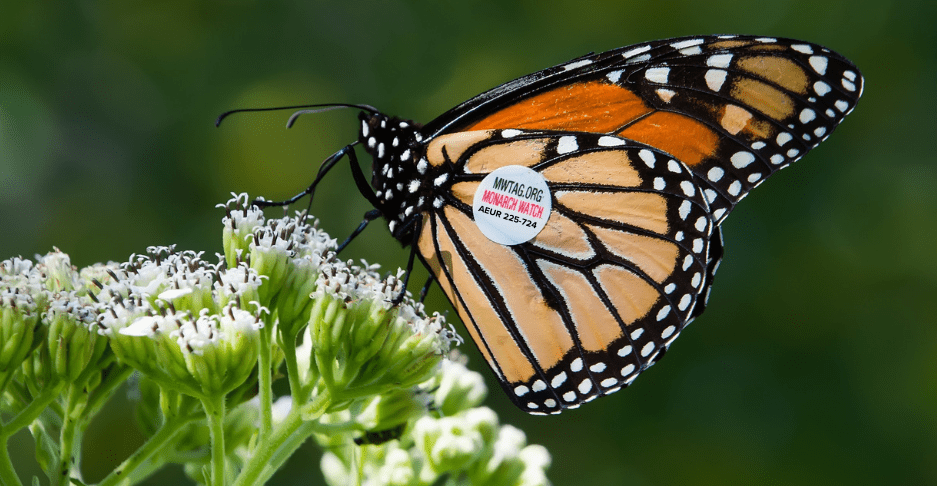
Monarch Watch
Norfolk Botanical Garden tags monarchs in the Summer Butterfly House, along with wild monarchs, as they prepare for their migration to Mexico. Tags are provided by Monarch Watch, and NBG’s butterflies are sequence AEUR 225-724.

Pesticide Risk to Pollinators
Pesticides, while used to control pests and weeds, can harm pollinators by affecting their reproduction, navigation, and survival, and by contaminating their food sources. Reducing pesticide use and protecting pollinator habitats are essential steps toward supporting healthy ecosystems.

Pollinator Plant Suggestions (Mid-Atlantic)
This regional list features native plants that support pollinators, caterpillars, bees, and beneficial insects.
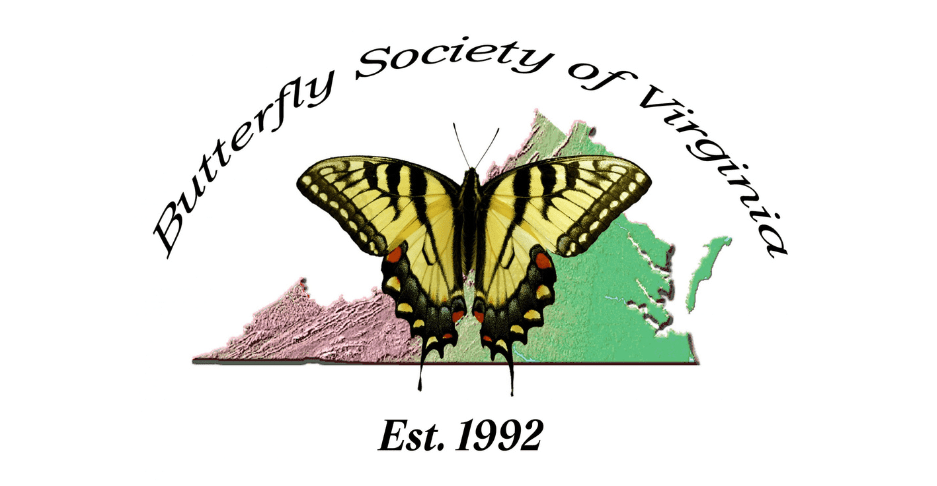
Butterfly Society of Virginia
The Butterfly Society of Virginia is a nonprofit organization dedicated to promoting butterfly and moth conservation.
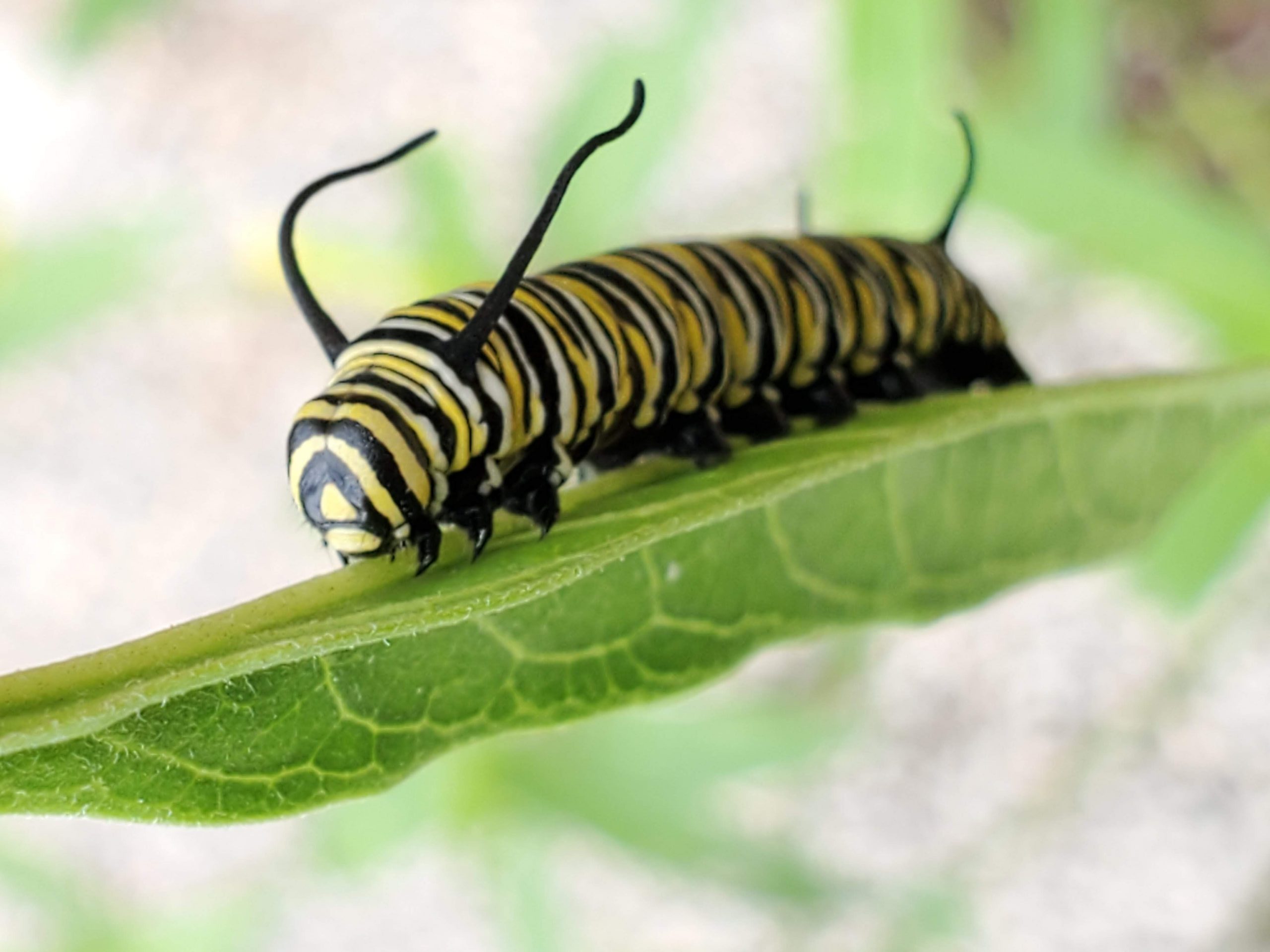
ADOPT A
BUTTERFLY TODAY

BECOME A MEMBER FOR EXCLUSIVE BENEFITS
